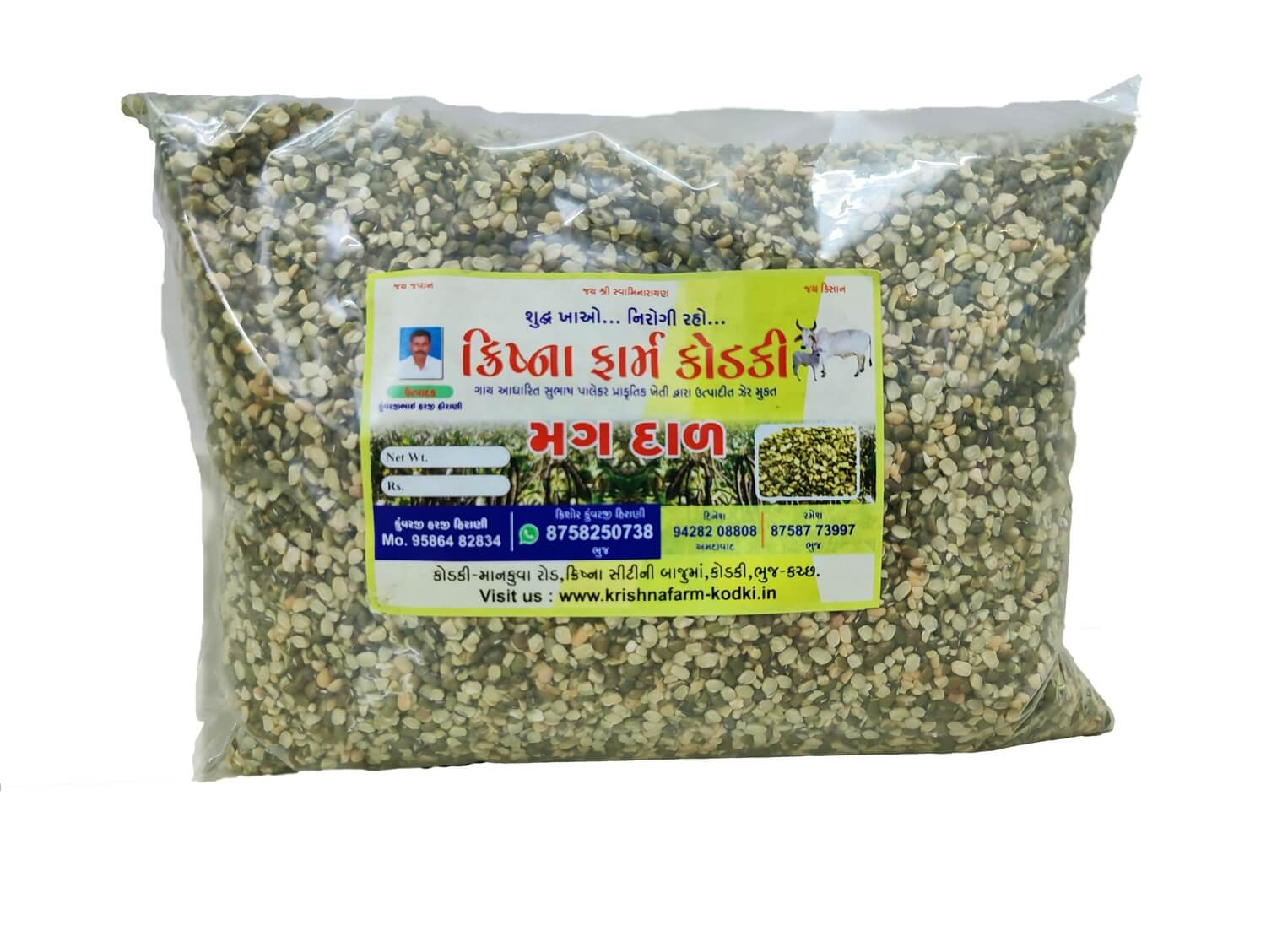Mung dal
Mung dal, also known as split mung beans, is a type of legume highly valued for its nutritional benefits and culinary versatility. It is celebrated for its delicate flavor and soft texture when cooked.



growing conditions

Climate
Mung beans grow best in warm, dry climates. They are typically grown in tropical, subtropical, and warm temperate regions.

Watering
Moderate irrigation is needed, especially during flowering and pod formation. However, excessive watering can lead to fungal diseases.

Soil
Well-drained sandy loam or loamy soil with a pH of 6.2 to 7.2 is ideal. Mung beans do not do well in waterlogged or clay-heavy soils.

Sunlight
Mung dal requires full sunlight. Plant them in an area that receives at least 6-8 hours of direct sunlight daily.

Temperature
The ideal temperature range is 25°C to 35°C. It cannot tolerate frost, so a frost-free growing season is essential.
Nutritional facts(100 gm)
- Calories: 105 kcal
- Carbohydrates: 19.15 grams
- Fiber: 7.6 grams
- Protein: 7.02 grams
- Fat: 0.38 grams
- Vitamin C: 1.7 mg
- Iron: 1.4 mg
- Magnesium: 48 mg
- Potassium: 369 mg
- Vitamin B9 (Folate): 159 µg
- Vitamin B1 (Thiamine): 0.083 mg









